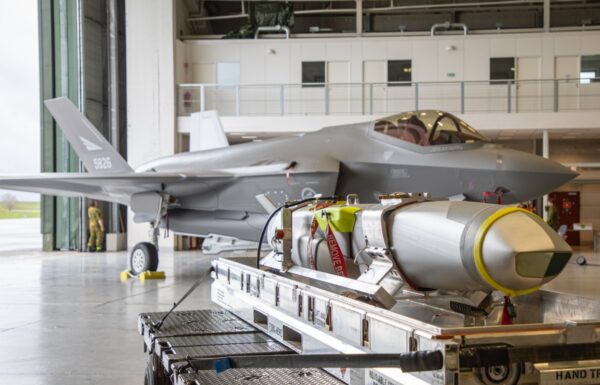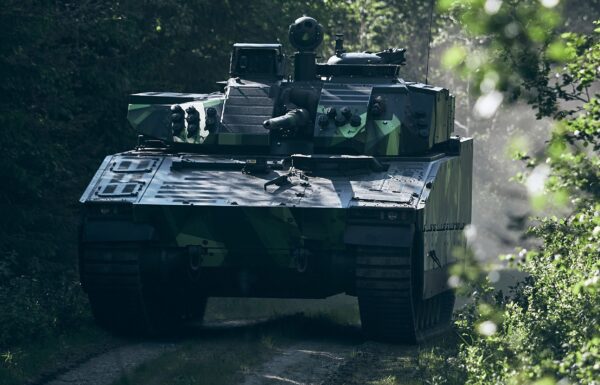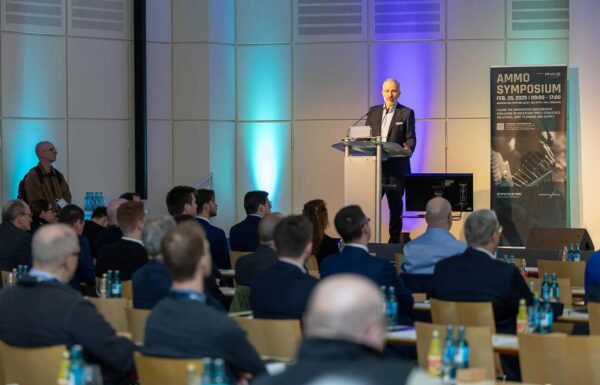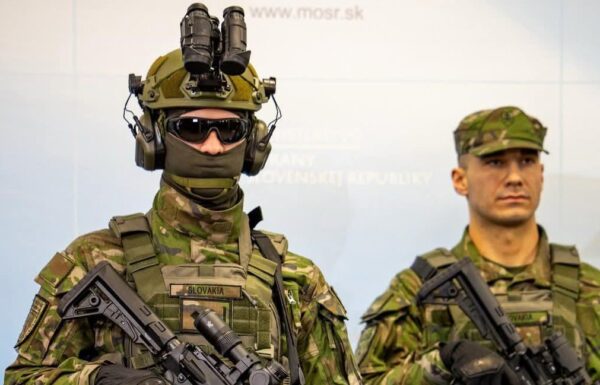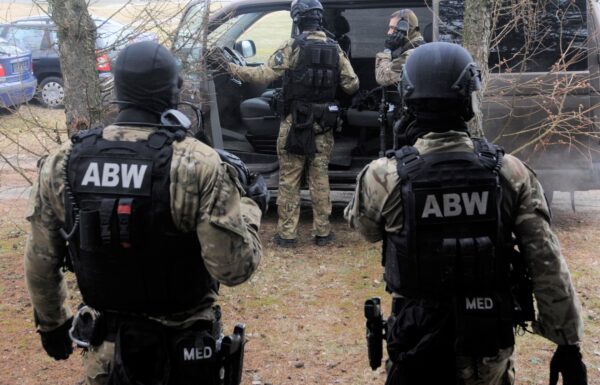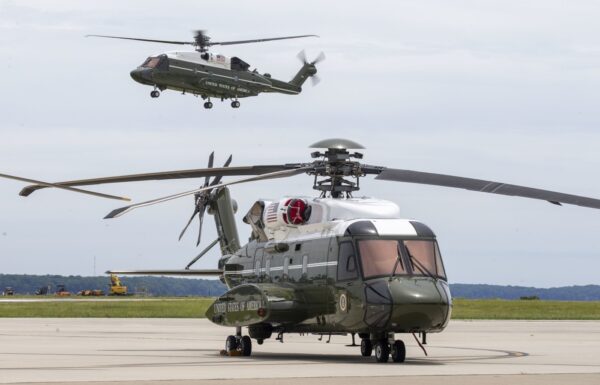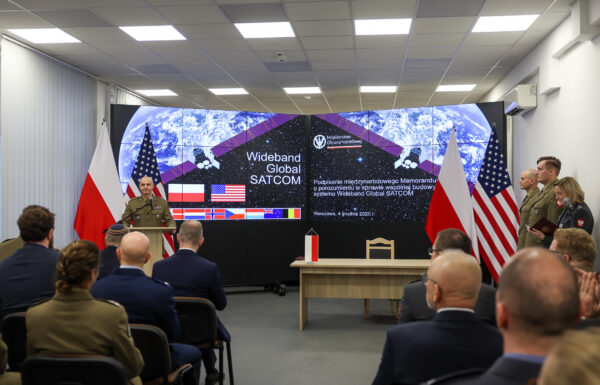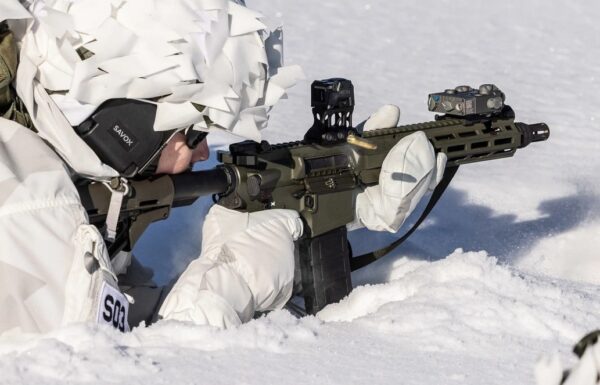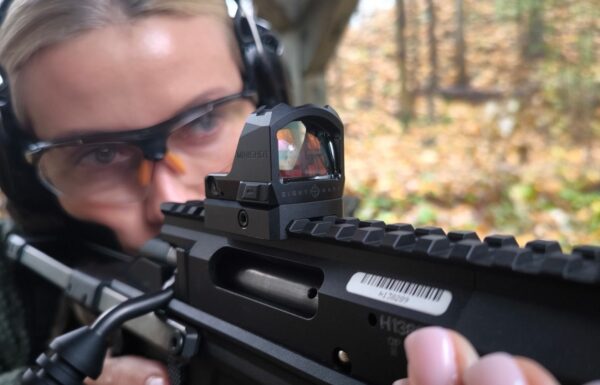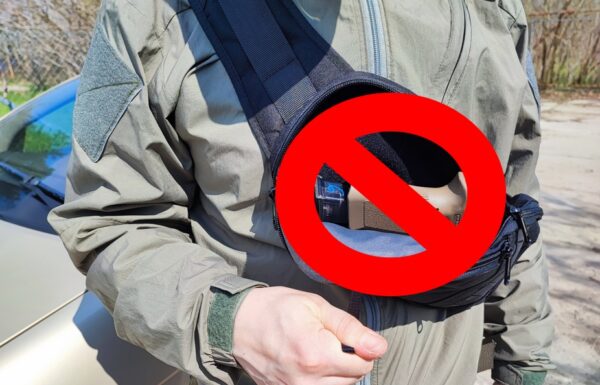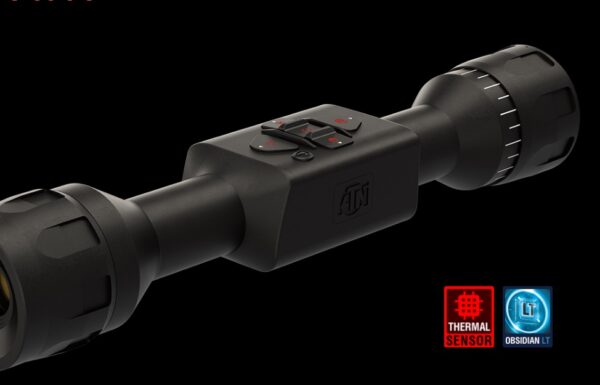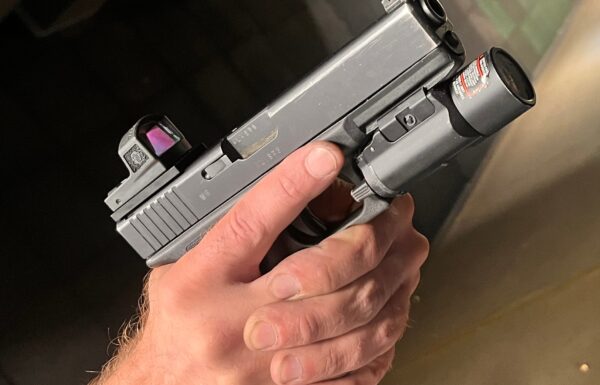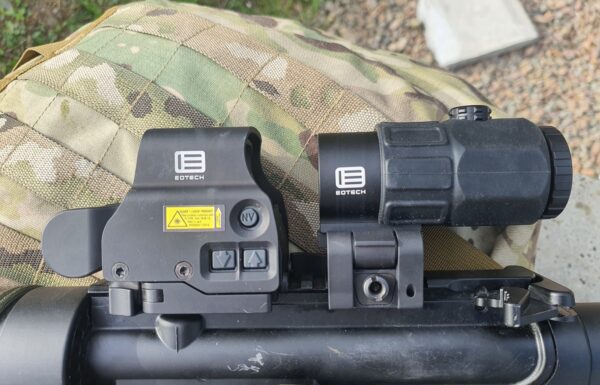On March 7 of this year, a contract was signed between the Polish State Treasury – Armament Agency and the Łukasiewicz Research Network – Industrial Research Institute for Automation and Measurements – PIAP for the delivery of 96 Mobile Unmanned Reconnaissance Vehicles (Mobilny Bezzałogowy Pojazd Rozpoznawczy – MBPR) Tarantula. The contract was signed by the head of the Armament Agency, Brig. Gen. Dr. Artur Kuptel, and Prof. Dr. Eng. Piotr Szynkarczyk, Director of Łukasiewicz – PIAP.
The agreement stipulates that the number of ordered robots can be increased to 130 units. Deliveries are planned for 2026-2027.
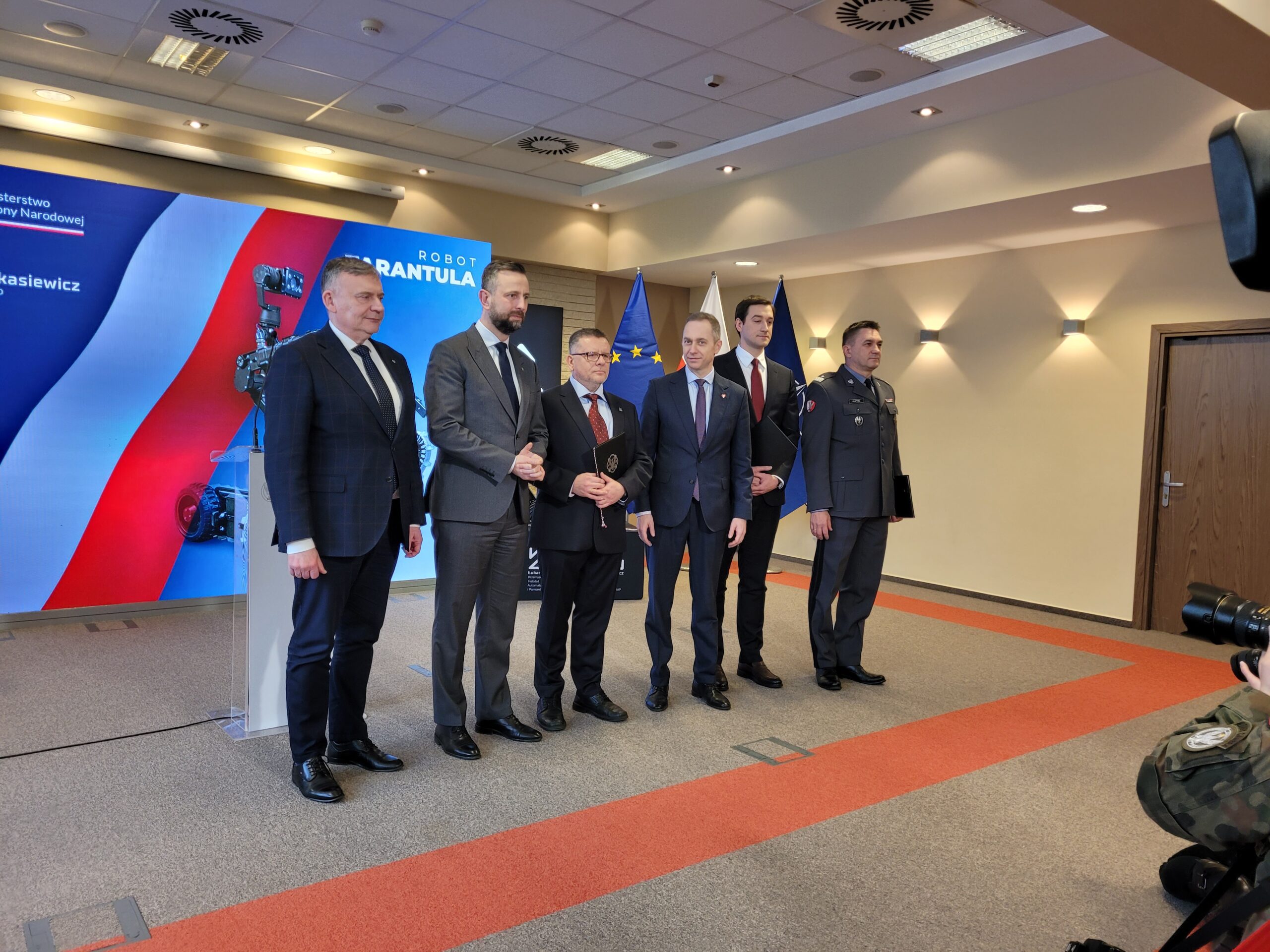
Participants of the contract signing ceremony for the MBPR Tarantula. From the left: Deputy Minister of National Defense Paweł Bejda, Minister of National Defense Władysław Kosiniak-Kamysz, Director of Łukasiewicz – PIAP Piotr Szynkarczyk, Deputy Minister of National Defense Cezary Tomczyk, President of the Łukasiewicz Research Network Hubert Cichocki, and Head of the Armament Agency Brig. Gen. Artur Kuptel
According to the requirements of the Ministry of National Defense, the functionalities of the MBPR should enable reconnaissance in direct contact with troops, penetration of areas inaccessible to humans, and transmission of reconnaissance sensor data via wireless audio and video communication to the operator’s console. The vehicle should be capable of moving across various terrains, including dirt roads, paved roads, off-road areas, and both open and urbanized environments, overcoming obstacles such as rubble, thresholds, stairs, and curbs, as well as having the ability to open doors. The MBPR’s design should allow transport in the landing compartments of military vehicles and be portable by a single soldier. Deliveries are planned to be carried out in batches until the end of 2027. The contract value is 50 million PLN.
Tarantula for drone forces
The MBPR Tarantula aligns with the new concept of establishing drone forces by the Ministry of National Defense at the beginning of this year as a separate branch of the Armed Forces.
I am very pleased that we are in a key place for the development of Polish robotics and that we are strengthening the Polish army. This is yet another contract we are signing, and it is a very important one because it aligns with our strategic directions and fulfills the objectives we have set for Poland’s national defense strategy. We are making significant investments in unmanned vehicles and drones. Poland needs extensive capabilities for drone production. That is why we see opportunities in European Union funds for Polish companies and innovative enterprises that have great ideas, valuable inventions, and discoveries. We need the strength to accelerate this industry. We need production capabilities, production lines, and a breakthrough for small and medium-sized enterprises that have innovative ideas and outstanding inventions but lack the financial resources to establish production lines.
– said Władysław Kosiniak-Kamysz, Minister of National Defense, who was present at the contract signing ceremony.
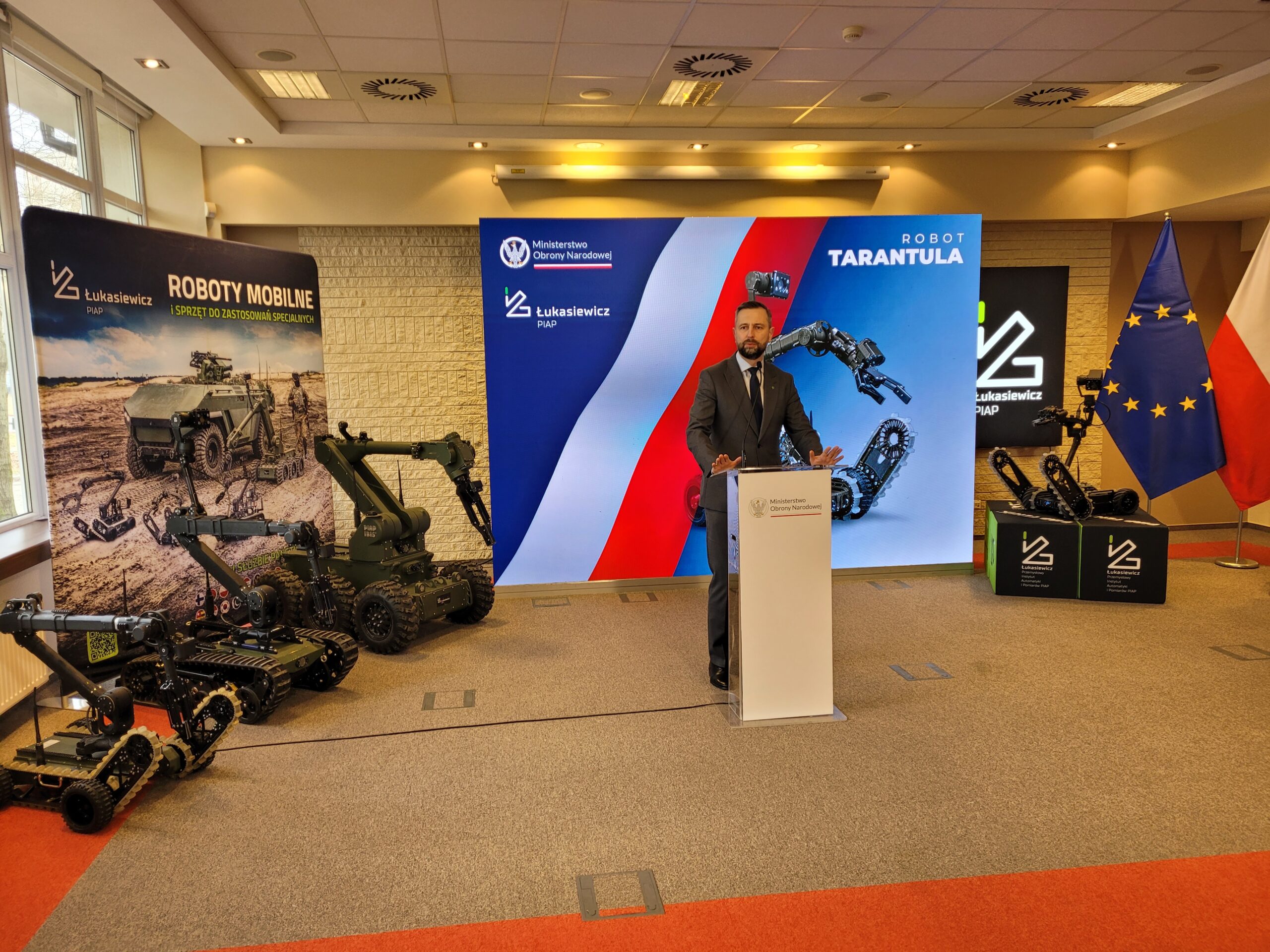
Speech by Deputy Prime Minister and Minister of National Defense Władysław Kosiniak-Kamysz after signing the contract for the purchase of 96 MBPR Tarantula robots
The MBPR is another mobile robot from Łukasiewicz – PIAP that will be introduced into the equipment of the Polish Armed Forces. For over 20 years, the institute has been supplying successive generations of EOD (Explosive Ordnance Disposal) robots for engineering units and the Special Unit of the Military Police. In December 2021, deliveries were completed for 35 sets of the Portable Patrol Robot (RPP) – the Engineering Robot 1806 model. This time, however, the new robots will not be assigned to sappers but will be used for reconnaissance, marking another stage in the implementation of the reconnaissance data collection, aggregation, and distribution system codenamed Pająk (Spider).
The MBPR robot is an advanced version of the PIAP FENIX 3.0 robot, adapted to meet the requirements set by the Armament Agency.
A long selection process
This is another attempt at procuring MBPR, this time successfully completed. The first procedure in the Tarantula program was launched on October 10, 2014. The following year, a contract worth 14.7 million PLN was signed with Reago Group for MTGRR robots, which offered robots from the Israeli company Roboteam. MTGRR is a variant of the MTGR (Micro Tactical Ground Robot) adapted for the Polish Armed Forces. At the same time, the offer from the Industrial Research Institute for Automation and Measurements (PIAP), which proposed the 1506 robot model, was rejected. The delivery of 50 robots was initially scheduled to be completed by 2016.
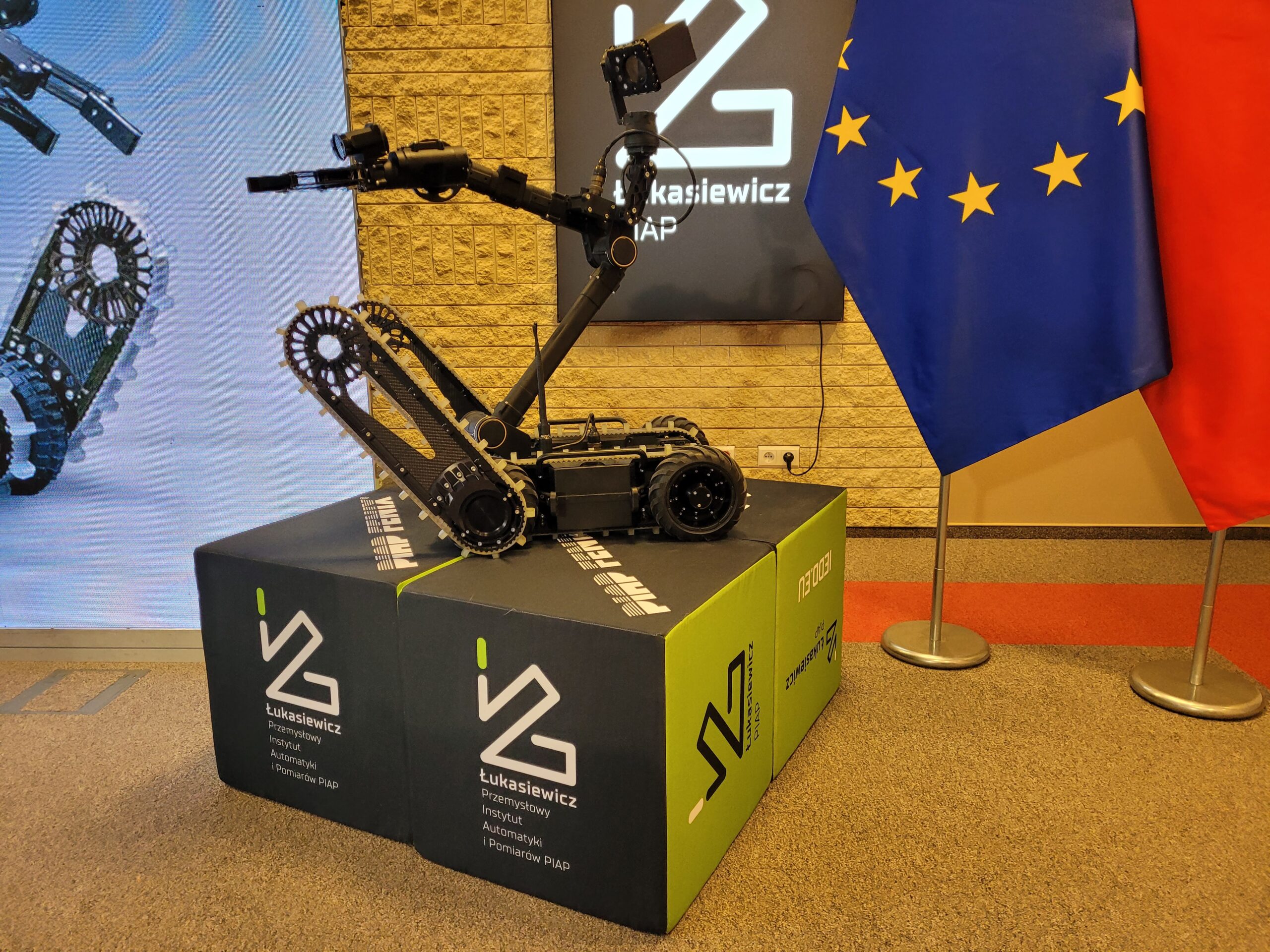
Mobile Unmanned Reconnaissance Vehicles Tarantula, developed and produced at Łukasiewicz – PIAP / Photos: Grzegorz Sobczak
In October 2017, the Armament Inspectorate of the Ministry of National Defense (IU MON, predecessor of the current Armament Agency) revealed that the procurement of MTGRR was abandoned because the robots failed the required field tests. As a result, a new procedure was initiated with revised assumptions. However, on March 12, 2018, it was canceled due to a lack of applications for participation. Another procurement process for the delivery of MBPR Tarantula was announced on September 27, 2017, but it was invalidated on March 12, 2018, because no bids were submitted that could be accepted. On November 6, 2019, the Armament Inspectorate of the Ministry of National Defense canceled the procurement procedure, which had been announced on July 11, 2018, for the delivery of 50 Mobile Unmanned Reconnaissance Vehicles (MBPR) Tarantula due to a lack of submitted bids.
As emphasized in his speech by Prof. Piotr Szynkarczyk, Director of Łukasiewicz – PIAP, the MBPR is the only design that meets all the requirements set in the tender by the Armament Agency.
It is worth recalling that on January 3, 2025, the Armament Agency published the results of the tender process for the delivery of 130 Mobile Unmanned Reconnaissance Vehicles (MBPR), including 107 as part of the main order and 23 as an option. The process had been ongoing since January 29, 2024, with six bidders participating. Market consultations on this matter were conducted in the summer of 2023.


